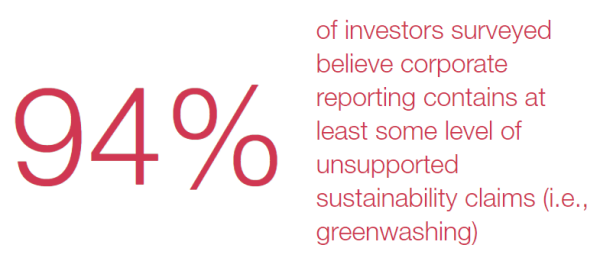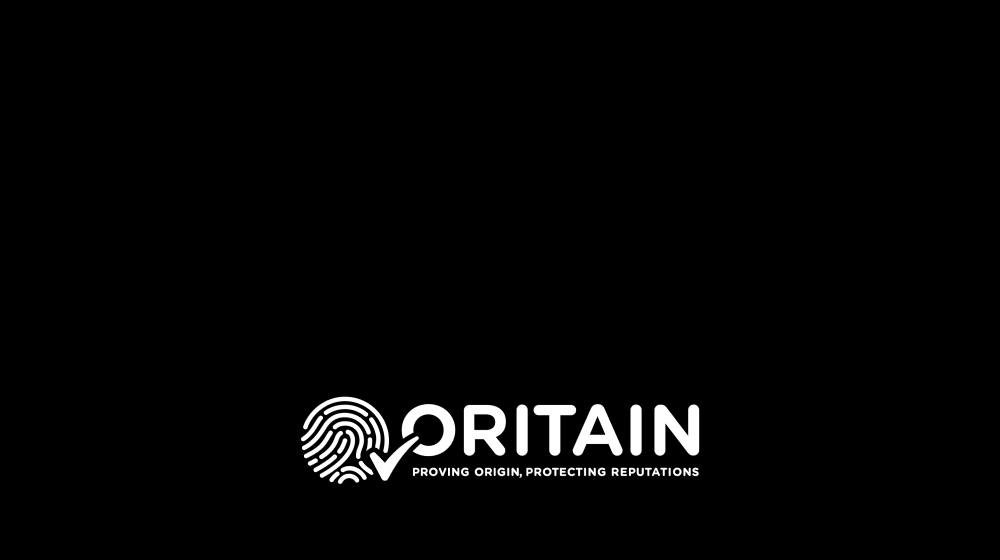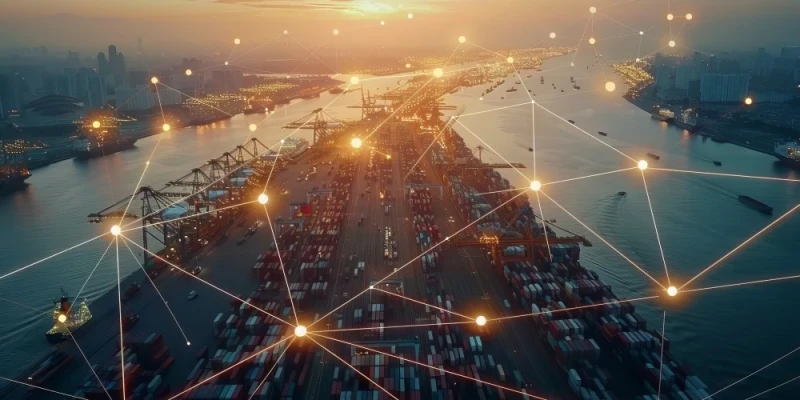2024 Forecast: Key Business Trends from AI to Environment
By Oritain Team | 8 January 2024
minutes to read.

While 2023 saw a heightened focus on regulation and sustainability, as we covered in our last article, the 2024 year is set to bring fresh challenges and opportunities for organizations.
Politics will take center stage as 40 countries around the world, including eight of the ten most populous, hold national elections, with particular attention set to be on the US Presidential election in November.
Environmental initiatives will lead the agenda at a series of major sustainability events, including the United Nations ‘Summit of the Future’ to be hosted in New York in September.
Events like these and others will have profound implications for how companies conduct their business in 2024 and beyond. So as the new year arrives, this is our forecast for the 12 months ahead, with the key trends we predict will shape the market, including expert commentary from Oritain strategic advisor Ana Hinojosa.
1. Big data in the driving seat
If information is power, businesses that make best use of that information will be positioned for greatest success. In 2024, we expect to see an acceleration in the importance of and reliance on big data to improve decision-making, develop new products and services, and target customers more effectively in increasingly regulated and competitive markets.
The demand for data has been growing for some time, with businesses already collecting information on market intent and customer purchase behavior from transactional records, social media activity, sensor data, and other sources.
Following a year of minimal growth expectations, the fashion industry will turn to big data to improve its fortunes in 2024. Data-driven insights will streamline product lifecycle management, better profile and segment customer groups, and deliver more tailored offerings. Brands will integrate this data into their planning, merchandising, and supply-chain processes.
The fruits of this approach are already in evidence. Studies by McKinsey report a 10% increase in sales for fashion and luxury brands who made data-driven decisions around stock and store optimization.

2. Artificial intelligence (AI) permeates business
The exponential growth of AI is set to become ubiquity in 2024 as theoretical possibilities become tangible opportunities. As the year progresses, few areas of business will remain untouched by the AI revolution.
Ana Hinojosa comments on this, saying “I think we're going to see a lot more proliferation of artificial intelligence that will improve data analytics and the ability for all kinds of businesses to get better visibility into their business practices.”
Investor demand will be a key driver of this, with 61% believing accelerated adoption of AI very important or extremely important for companies to create value over the next few years, according to the annual PwC Global Investor Survey. Integration of AI and other emerging technologies will increasingly define whether companies can seize opportunities for reinvention and business transformation, or be left in the competitive dust.
In the fashion industry, the global market for AI is projected to grow to $4.4B by 2027, from just $270M in 2018. Across the broader fashion, apparel, and luxury sectors, the technology is estimated to potentially add between $150 and $275 billion.

Source: Elle: The Future of Fashion
AI forecasting tools will allow industry analysts to make more accurate sales forecasts, thereby reducing waste, saving money, and providing advantage in the market. Millions of social posts will be analyzed each day to identify trends across different demographics, arming manufacturers and retailers with valuable information to drive their design and stock decisions.
The technology will also be employed to protect against environmental and human rights abuses. Combining AI with satellite imagery will assist governments in identifying and clamping down on forced labor and deforestation practices. An early trial of this technique is being conducted to track forced labor in the jungles of Brazil.
“We've seen a lot of artificial intelligence being able to data mine open-source information,” says Ms Hinojosa. “Being able to support ingesting masses and masses of data can only help improve the capabilities of companies. Some of the traditional barriers in transacting across borders are being overcome with AI, which for example can understand multiple languages and make sense of the information it ingests. I think it will enable better synergies, better collaboration, and better partnerships between companies that ultimately will result in better products and services for customers.”

3. Greenwashing in the crosshairs
Judging by Google trend data, the area of sustainability has never been more popular, and this interest has seen a rapid rise in the subject on government and corporate agendas.
Previous studies have shown that a third of consumers choose brands demonstrating positive environmental practices, while 28% won’t buy from brands with poor ethical or sustainability values.
However, in 2024, words alone won’t be enough. Environmental claims are being treated with greater levels of skepticism, with both consumers and other groups unwilling to accept these claims at face value. A large majority of investors (94%) suspect that corporate disclosures contain some greenwashing – and this lack of trust is rising.

In 2024, stronger legal actions and consequences for greenwashing are expected. The EU has agreed to ban greenwashing and has set new rules to prevent misleading advertisements. Greenwashing claims by brands in both Britain and the Netherlands are already being investigated by local authorities.
The Australian Competition and Consumer Commission (ACCC) identified that 57% of businesses made environmental claims which had the potential to mislead consumers, and have issued guidelines for companies to adhere to in their environmental messaging.
Some of the world’s largest tech companies are leading the movement in the US, where Microsoft and Salesforce are advocating for legislation that requires businesses operating in California with an annual revenue of over $1 billion to disclose their climate risks.
Whichever markets companies operate in, the onus is now firmly on leaders to find ways to meet sustainability commitments and rebuild confidence in their outputs. External assurance through independent certification programs can provide a solution for this.

4. Ethical practice makes good business
Ethical investing is another trend expected to grow in importance in 2024, where organizations’ actions in areas like labor markets and supply chain management will significantly affect their opportunities for growth.
“One of the things I’ve noticed in the last two years is much greater interest on the part of investors in the ethical and social responsibilities that businesses are expected to make or the promises that are made to their investors,” says Ana Hinojosa. “They're much more interested in evaluating the risk of the businesses they're investing in based on what these commitments are and what the demonstrated efforts have been in meeting those commitments.”
This is supported by PwC’s Global Investor Survey 2023, which reports that investors want greater detail on the impact of company actions on society and the environment, combined with a view of what it means for financial performance. Investors expect companies to make expenditures that address ESG issues relevant to their business, even if doing so reduces short-term profitability.
“One of the consequences of noncompliance could be reduced access to financing,” continues Ms Hinojosa, “because investors are often very conservative and not looking to risk investment with a company where they’re not sure if they’re going to be compliant or not.”
There’s good reason for companies to improve their ethical credentials – business ethics and public image go hand in hand. Ethically managed businesses are more appealing to consumers, particularly millennials, and especially in a climate where indiscretions are amplified instantly via social media. According to the Conscious Consumer Spending Index, 67% of customers prefer buying from socially responsible companies.
In 2024, expect to see an increased emphasis in this area and greater prominence in corporate disclosures on how they’re addressing these topics.

5. Regulation widens its net
The production and promotion of many goods will be overhauled in 2024 as both new regulation and the impact of recently passed legislation forces businesses to update their operating models.
By the end of 2024, all clothing items sold in France will require a label detailing its precise climate impact. Both Norway and Germany have introduced due diligence acts mandating that companies identify and address any negative impacts on people and the planet that they may have contributed to — with hefty fines and potential operational bans if they do not.
New EU regulations will come into effect, imposing changes in clothing manufacture. Any products failing to comply with the Ecodesign for Sustainable Products Regulation will not be able to be sold on the EU market.
Ana Hinojosa believes the scope of regulatory change will extend far wider than this. “I think that we're going to be looking at a lot more products and impacted people. It’s not just the fashion industry or the cotton industry. None of the laws are limited to those products, it’s just that the government hasn't chosen to start widening their aperture on what they're looking at. But when they do, there'll be a greater impact on a lot of products that companies need to take heed of.”
She singles out one particular industry she believes will come under increased scrutiny. “A number of countries are very concerned about food safety, so I think food safety is going to gain a lot more prominence and a lot more visibility.”
When combined with the ongoing impacts of legislation like the Uyghur Forced Labor Prevention Act (UFLPA) and the EU Deforestation Regulation (EUDR), 2024 will see no relief for businesses from regulatory oversight.
Five key trends for the coming year, but all sharing a common thread – change. Where resilience defined successful businesses through the early 2020s, evolution and transformation will be the themes shaping the decade’s middle years. Ambitious companies will want to start their preparations today.
To learn more about how Oritain is helping organizations protect their supply chains and improve their sustainability performance, contact us to speak with one of our team.
Disclaimer: The information provided in this document does not and is not intended to constitute legal advice. Instead, all information presented here is for general informational purposes only. Counsel should be consulted with respect to any particular legal situation.





